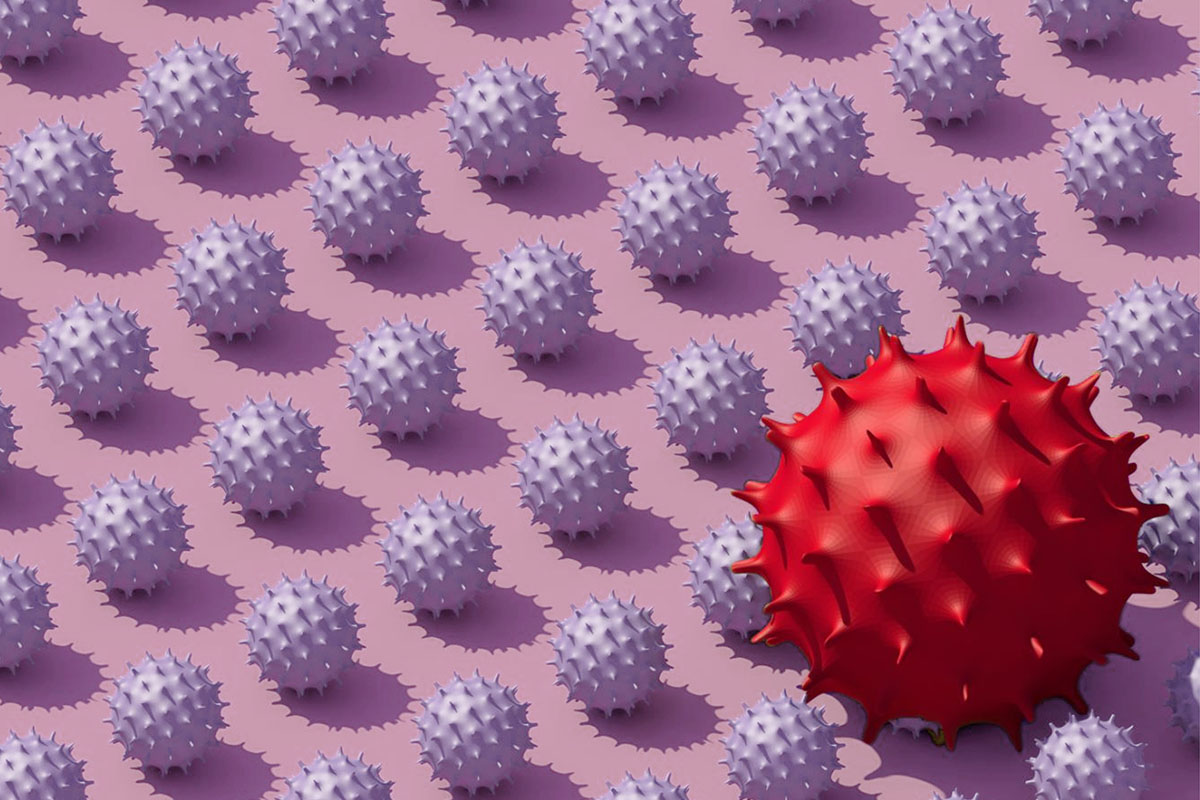
Issue 40 / November 2021
IN VIVO
Yong Loo Lin School of Medicine and Lien Foundation Establish Early Childhood Centre with
$30 Million Gift

The Centre for Holistic Initiatives for Learning and Development (CHILD), established with a generous gift of S$30 million from the Lien Foundation, will provide a multidisciplinary approach to translating critical research to intervention, and improving the health and developmental outcomes of children in Singapore and beyond.
he first of its kind in Asia, CHILD will build on an unmatched reservoir of clinical data on mothers and children in Singapore, provided by a much-cited research study—the GUSTO1 (Growing Up in Singapore Towards healthy Outcomes) cohort. The GUSTO study is a major collaborative research effort involving the National University Health System, KK Women’s and Children’s Hospital, and A*STAR’s Singapore Institute for Clinical Sciences, as well as international researchers in New Zealand, the United Kingdom, and other countries.
CHILD is an inclusive, multi-collaborative effort, whose founding partners include NUS Medicine, Lien Foundation, Centre for Evidence and Implementation (CEI), and A*STAR’s Singapore Institute for Clinical Sciences (SICS). It aims to work with multiple partners in the local early childhood and family services space.
The work of CHILD supports the Research, Innovation and Enterprise (RIE) 2025 plans on ‘human health and potential’ which aims to realise the full potential of every child through improving prenatal and early childhood development, and learning outcomes in schools. It also ties in well with the mission of Singapore’s Child and Maternal Health and Well-being Task Force to help women prepare for motherhood, and help children attain good health and well-being from their early years.
Its key propositions include:
A multidisciplinary approach bringing together professionals from a variety of disciplines, cutting across social, health and education boundaries and incorporating health, sociology, psychology, artificial intelligence, and data analytics.
Helping to build capability and capacity at all levels and spheres within the early childhood space, involving its network of partners and collaborators comprising scientists, researchers, community partners, policymakers, teachers, therapists, and other professionals.
Closing the gap between the evidence for what works to give children the best start to life and the effective implementation of this in policymaking and service delivery.
Innovative, novel screening tools – develop and implement research-validated ‘made-in Singapore’ early screening tools as part of early detection, and to accurately and reliably identify children at risk of developmental concerns and stratify them according to risks. An example of this is the Whole Child Assessment (WCA)2 developed by GUSTO researchers to assess school readiness.
Developing targeted intervention programmes tailored according to the risk profile of children screened, instead of a common one-size-fits-all approach. Examples of this include the EASEL (Enhancing and Screening Early Development to Better Children’s Lives) Trial which screens preschool children and also provides appropriate interventions to improve early childhood educators’ everyday practices in the classroom and their delivery of these practices for children with different needs. Another example is the Appetite Toolbox which aims to cultivate healthy eating behaviours early in life, and provide children and caregivers with tools designed to enhance self-regulated eating skills during preschool.
Breadth of focus – Based on GUSTO, as well as the latest evidence and data in the childhood development space, the focus is from conception to the primary school years.
“The work of CHILD will promote efforts to maximise the developmental potential of children, with a focus on their emotional, cognitive, and social well-being, from conception to primary school years. The centre’s emphasis is in line with Singapore’s national drive to boost the health and well-being of mothers and their children and ensure a good start to life for all children in Singapore,” said Professor Chong Yap Seng, Dean of NUS Medicine, and Executive Director, SICS, A*STAR.
“In a time of rapid social and technological change, we believe the convergence of disciplines and collaborative talents will inspire and propel new ways of uplifting the early childhood ecosystem,” said Mr Lee Poh Wah, CEO, Lien Foundation.
“We see CHILD as an investment in the future and it represents a commitment to support the national ambition of maximising human potential and enhancing the health and well-being of the next generation. We look forward to co-creating solutions with forward-thinking partners to ultimately achieve better outcomes for our young,” said Mr Lee.

In gathering and synthesising the latest evidence and data across disciplines from Singapore and in the region, which will be used to guide and inform social policies and programmes and to accelerate the process from research and evidence to policy and intervention, CHILD aims to engage and bring together key stakeholders in the local early childhood and family services space comprising government institutions such as the Health Promotion Board, social service agencies, preschools and other institutions, as well as international partners.
“Findings from recent studies present clear evidence that high amounts of passive viewing screen time in early childhood are associated with numerous developmental and behavioural issues, including language delays, social communication deficits, and attention deficit hyperactivity disorder (ADHD) traits. This is a worrying trend and a key public health concern that we can, and ought to address, especially in this digital age where increased digital media use in infants and toddlers is ubiquitous,” said Professor Lee Yung Seng, Co-Director of CHILD and Head of Paediatrics at NUS Medicine.
“Based on current evidence, CHILD would recommend no passive screen time for children below 18 months and not more than one hour per day of unsupervised, passive screen viewing for children between 18 and 36 months of age,” added Assistant Professor Evelyn Law from the Department of Paediatrics at NUS Medicine and Principal Investigator, Translational Neuroscience Programme, SICS, A*STAR.
“Children are the future of our society. For long-term benefit across generations and to ensure optimal outcomes for the children, we urgently need to start focusing on women’s maternal mental health and well-being before pregnancy through to after birth. By amalgamating and integrating the research efforts in early childhood development, from preconception to pregnancy to the child’s infancy and early growing up years, the Centre is uniquely poised to accelerate this paradigm shift in our understanding of brain development and function in young children,” said Prof Chong Yap Seng.
CHILD Evidence Briefs
CHILD has produced two ‘Evidence Insights’ on maternal mental health and the impact of digital media use on children’s brain development.
|
a) |
Maternal mental health affects brain development in children Research from GUSTO, which aims to understand how conditions in pregnancy and early childhood influence the health and development of women and children, has shown that nearly 40% of mothers in Singapore displayed depressive symptoms during pregnancy. Even at mild to moderate levels, this distress experienced by the mothers may affect the cognitive and emotional development and function of the child, and may go on to have an adverse impact on their school readiness, academic performance and even mental health3,4. The impairment of these functions places the child at a lifelong disadvantage5. Importantly, the S-PRESTO (Singapore Preconception Study of long-Term maternal and child Outcomes) study found that women’s maternal mental health issues may begin before conception, and remain problematic during their pregnancies, and even after delivery. “These are significant findings that underscore the need for proactive intervention to take place as early as preconception, during pregnancy, and early postnatal period. This will ensure the optimal development of executive functions6 in the early years of their children and reduce the risks of lifelong downstream disadvantages. Interventions need to focus on both the mother and infant, with parental needs being supported even before the child is born,” explained Associate Professor Robyn Mildon, Co-Director of CHILD and Founding Executive Director of CEI. |
|
b) |
Adverse impact of passive screen time on children’s cognitive and socio-emotional development The early childhood years also present a crucial period to shape a child’s cognitive development. In a study led by A/Prof Evelyn Law, which drew findings from GUSTO, it was found that locally, almost all infants and toddlers under two years of age are exposed to approximately two hours of digital media a day via electronic screen-based devices. High levels of passive viewing screen time during these early years may have adverse consequences for cognitive development in later childhood, including poorer eating behaviour, poor sleep, attention difficulties, near-sightedness, as well as developmental delays. |
-
GUSTO is a landmark study which has gathered valuable data in the past decade about how conditions in pregnancy and early childhood influenced maternal mental health and child neurodevelopment. More information on GUSTO is available at: http://www.gusto.sg/.
-
The Whole Child Assessment (WCA) is a screening approach to identify children with learning difficulties before they enter primary school.
-
Glover V. Maternal depression, anxiety and stress during pregnancy and child outcome; what needs to be done. Best Practice & Research Clinical Obstetrics & Gynaecology. 2014; 28 (1): 25-35.
-
Law EC, Aishworiya R, Cai S, et al. Income disparity in school readiness and the mediating role of perinatal maternal mental health: a longitudinal birth cohort study. Epidemiology and Psychiatric Sciences. 2021; 30: e6.
-
Moffitt TE, Arseneault L, Belsky D, et al. A gradient of childhood self-control predicts health, wealth, and public safety. Proceedings of the National Academy of Sciences of the United States of America. 2011; 108 (7): 2693-2698.
-
“Executive functions” are absolutely central to acquiring knowledge and solving problems, and are therefore critically important in school, work, and other aspects of daily life. They include the ability to consciously control behaviour; flexible thinking that forms the basis for planning and problem solving; the ability to regulate attention and process information; the self-regulation of emotional states; goal setting, planning and organisation.




